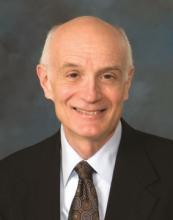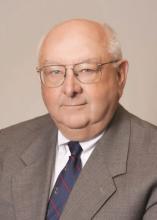The American Board of Surgery (ABS) was founded in 1937 by the leading surgical organizations of the time in recognition of the need to differentiate formally trained surgeons from other doctors who were performing operations without formal training.
At its onset, the ABS acknowledged that it had a dual purpose: to protect the public and improve the specialty of surgery. Eligibility criteria for certification were defined – graduation from an approved medical school, the requisite duration of surgical training, a list of operations performed, high ethical standards – and passing an examination became a differentiating requirement.
Over the nearly eight decades since its founding, the ABS has retained its position as the premier certifying body for surgeons in the United States. Its mission statement, “to serve the public and the specialty of surgery by providing leadership in surgical education and practice, by promoting excellence through rigorous evaluation and examination, and by promoting the highest standards for professionalism, lifelong learning, and the continuous certification of surgeons in practice,” embodies the elements of the Maintenance of Certification (MOC) Program. Setting standards for board certification is a privilege of self-regulation that has been granted to our profession by the American public. In return, we must demonstrate our commitment to serve the best interests of the public through our processes and requirements.
ABS certification is based upon education, evaluation, and assessment. Appropriate undergraduate medical education, accredited surgical training, broad operative experience, and high ethical standing continue as essential requirements of ABS certification. For the first four decades of its existence, once ABS certification was achieved, it was valid for a surgeon’s entire professional career. This changed as the ABS Directors recognized the rapid evolution of surgical practice and believed it was necessary for diplomates to demonstrate that they were up to date with advances in medical knowledge and patient care. In 1976, the ABS adopted time-limited certification and required its diplomates to “recertify” by passing an examination every 10 years. In 2000, a requirement for its diplomates to complete 100 hours of continuing medical education (CME) credits in the 2 years prior to applying for the recertification exam (60 in Category I and 40 in Category II) was implemented. This requirement has been modified since; however, the basic rationale for its adoption remains relevant.
In 2005, the American Board of Medical Specialties (ABMS), which establishes standards for its 24 member boards, introduced MOC and proposed standards based on the six competencies jointly developed by the Accreditation Council on Graduate Medical Education and the ABMS. These competencies – patient care, medical knowledge, professionalism, interpersonal communication skills, practice-based learning and improvement, and systems-based practice – were the basis for the four parts of MOC: professional standing, lifelong learning and self-assessment, cognitive expertise, and evaluation of performance in practice. The development of MOC was further recognition that board certification needed to become a more continuous process as the pace of change in medicine had accelerated beyond any seen previously.
Boards and their diplomates have the responsibility to demonstrate to the public and their peers an enduring commitment to maintain standards for the profession, participate in lifelong education, possess medical knowledge relevant to the specialty, and improve their performance in practice. All surgeons certified or recertified beginning July 2005 have been enrolled in ABS MOC. A decade later, 95% of ABS diplomates with time-limited certificates are enrolled in the ABS MOC program and more than 90% are actively participating.
Although the ABMS established general requirements for MOC that its member boards must meet, each board is allowed to develop its own requirements. The foundations of the ABS MOC program were established before the term “maintenance of certification” was used. Professional standards have been a requirement for ABS certification since its beginning and exam requirements have been in place for more than a generation. All diplomates must fulfill the professional standing requirements to have a valid unrestricted state medical license, have hospital or ambulatory surgery center privileges if clinically active, and have references from the chief of surgery and the chair of the credentials committee where they practice.
The ABS MOC program is meant to be practice relevant. This allows surgeons to satisfy the requirements by completing CME that they choose and by participating in performance assessment activities in a way that best applies to their practices. The requirement that two-thirds of the CME hours earned be self-assessment demonstrates a greater level of engagement of the learner and shows that knowledge acquisition is achieved at the conclusion of the activity. The addition of a practice performance improvement activity requirement has generated the most controversy and misunderstanding. To meet this requirement, diplomates are asked to assess some aspect of their practice and seek to improve that. This can be done in conjunction with a hospital through participation in a national, regional, or state registry that tracks patient outcomes, or by participating in a hospital-based quality improvement activity. Some diplomates have developed performance improvement activities within their offices by focusing on a specific area for evaluation, defining measures and goals for improvement, analyzing results and making changes when appropriate, and then reassessing to develop an action plan for improvement.


